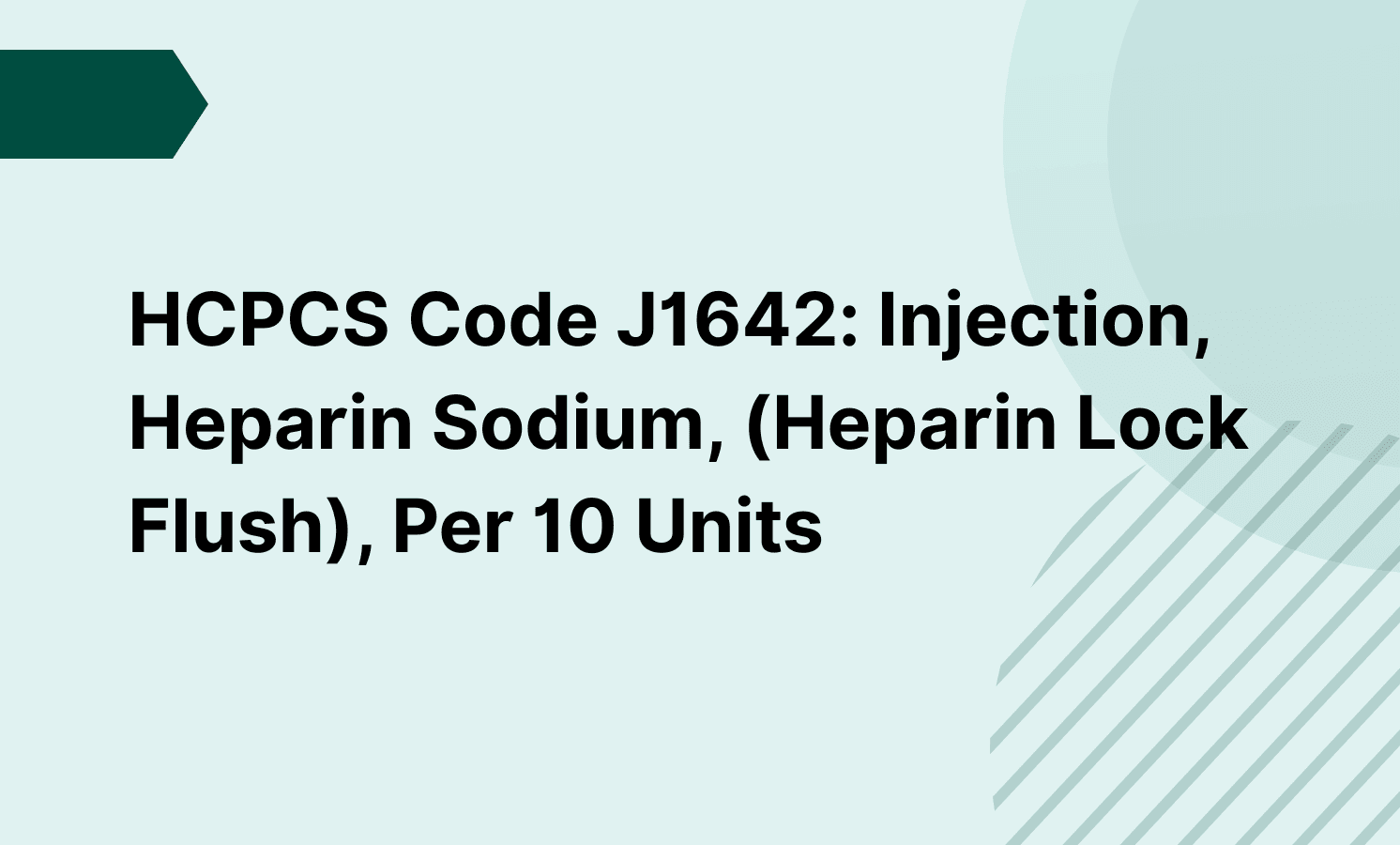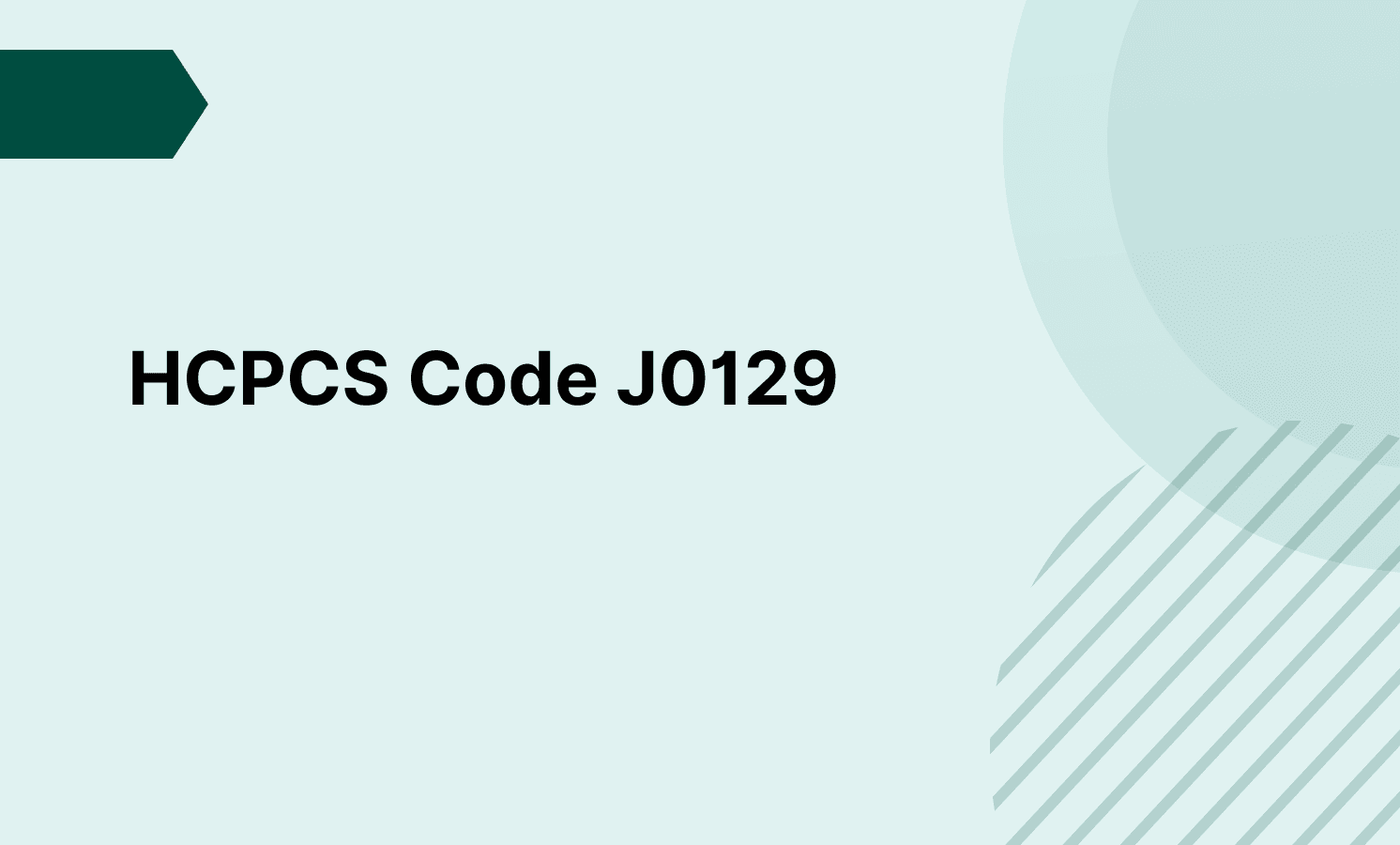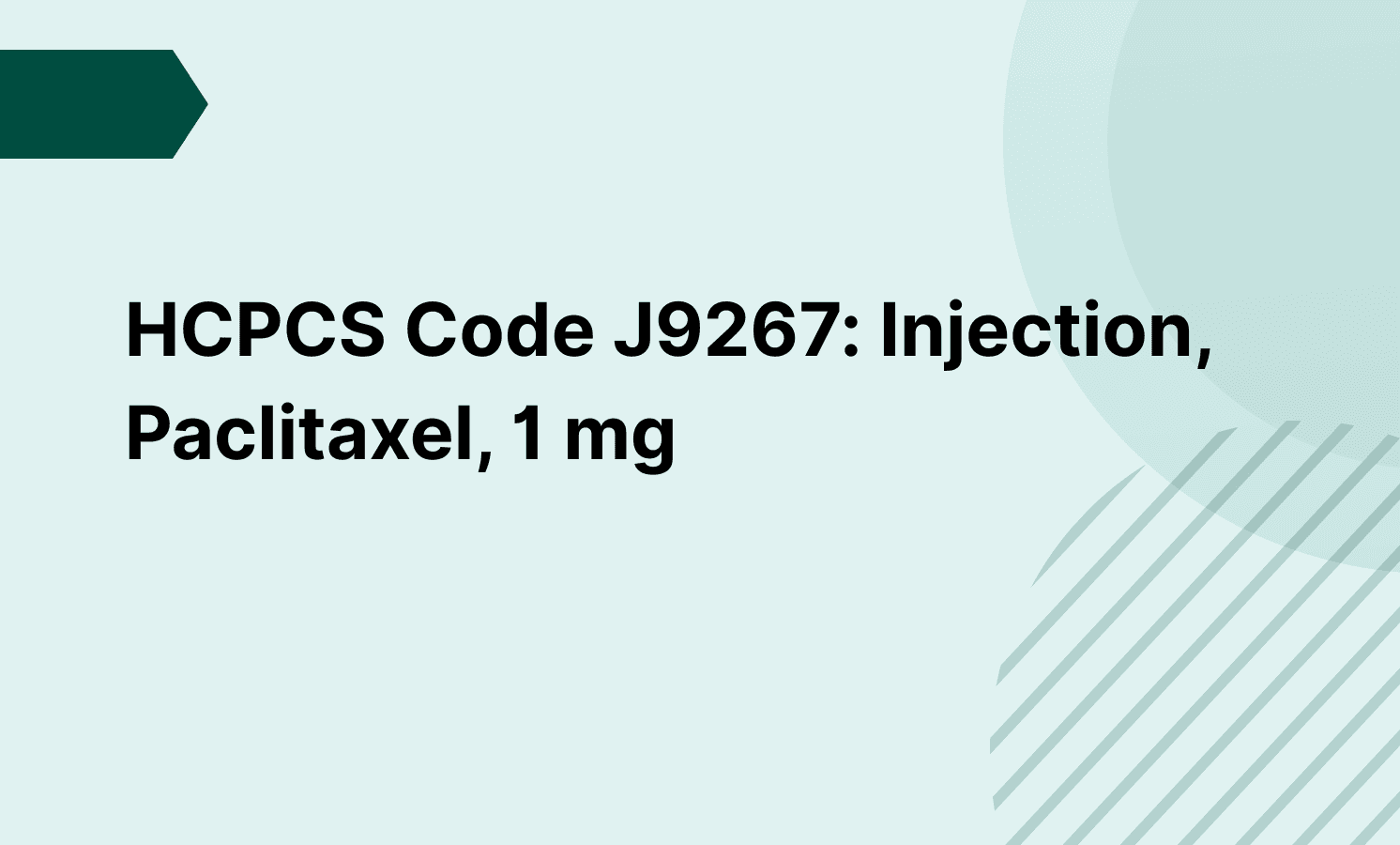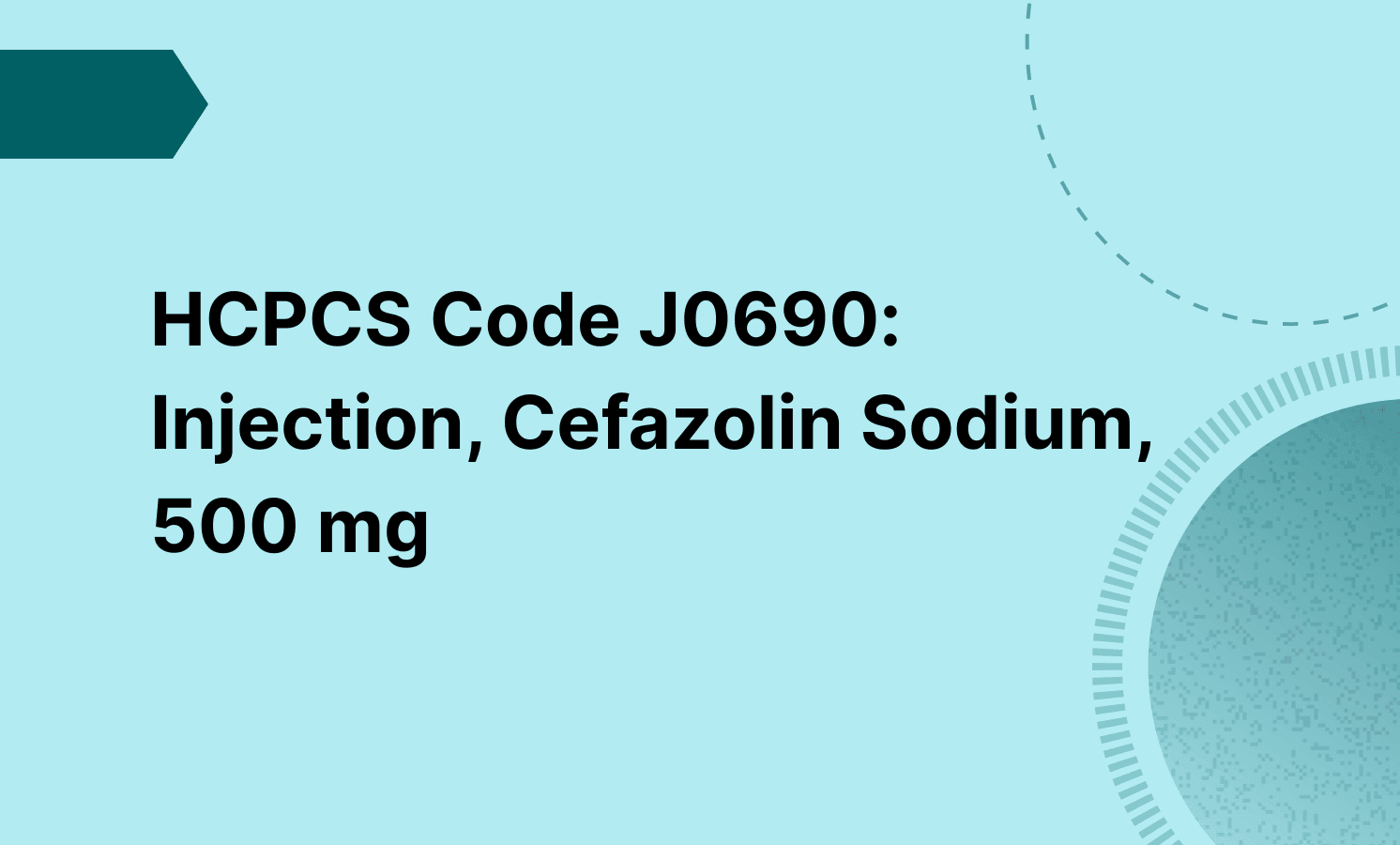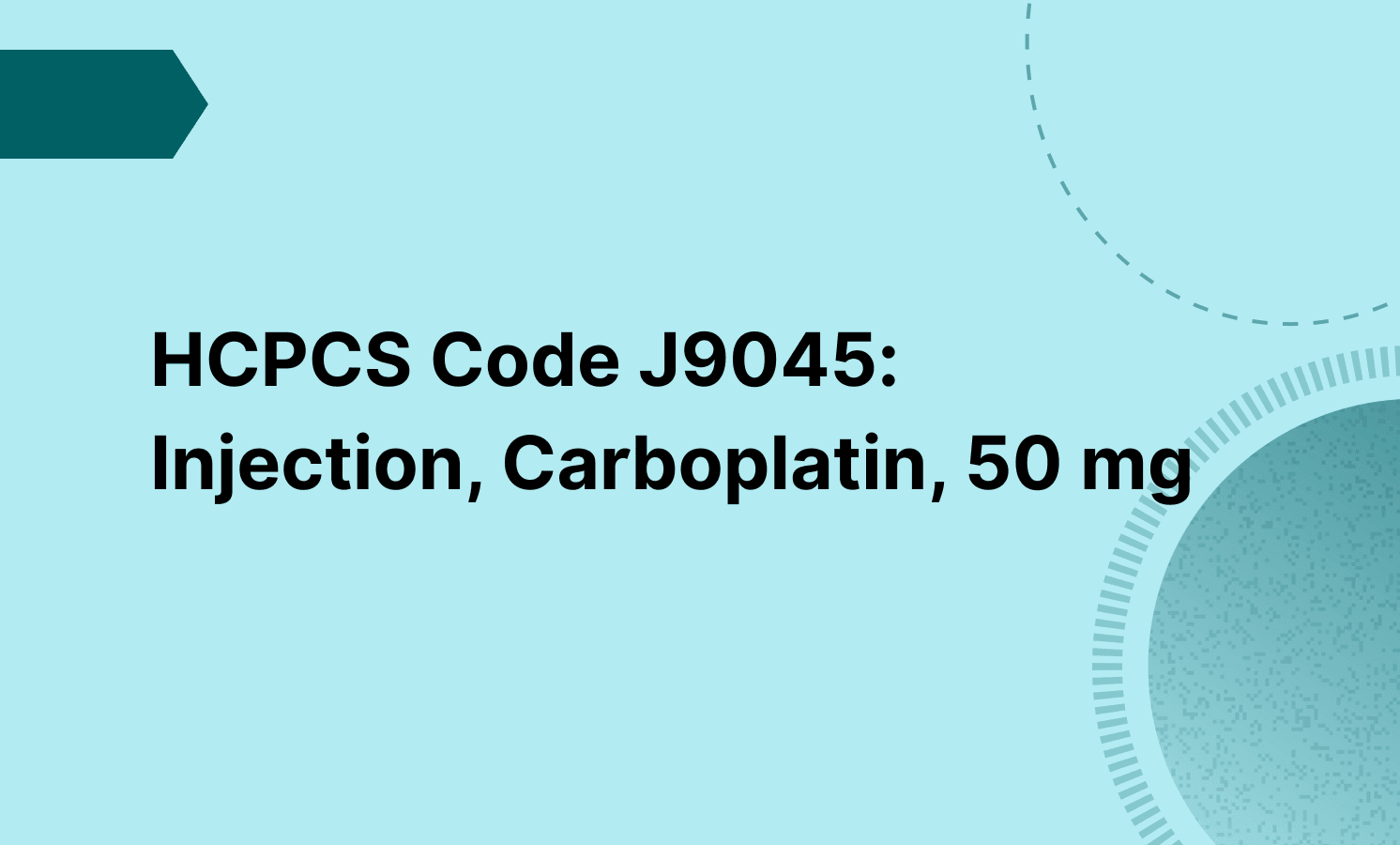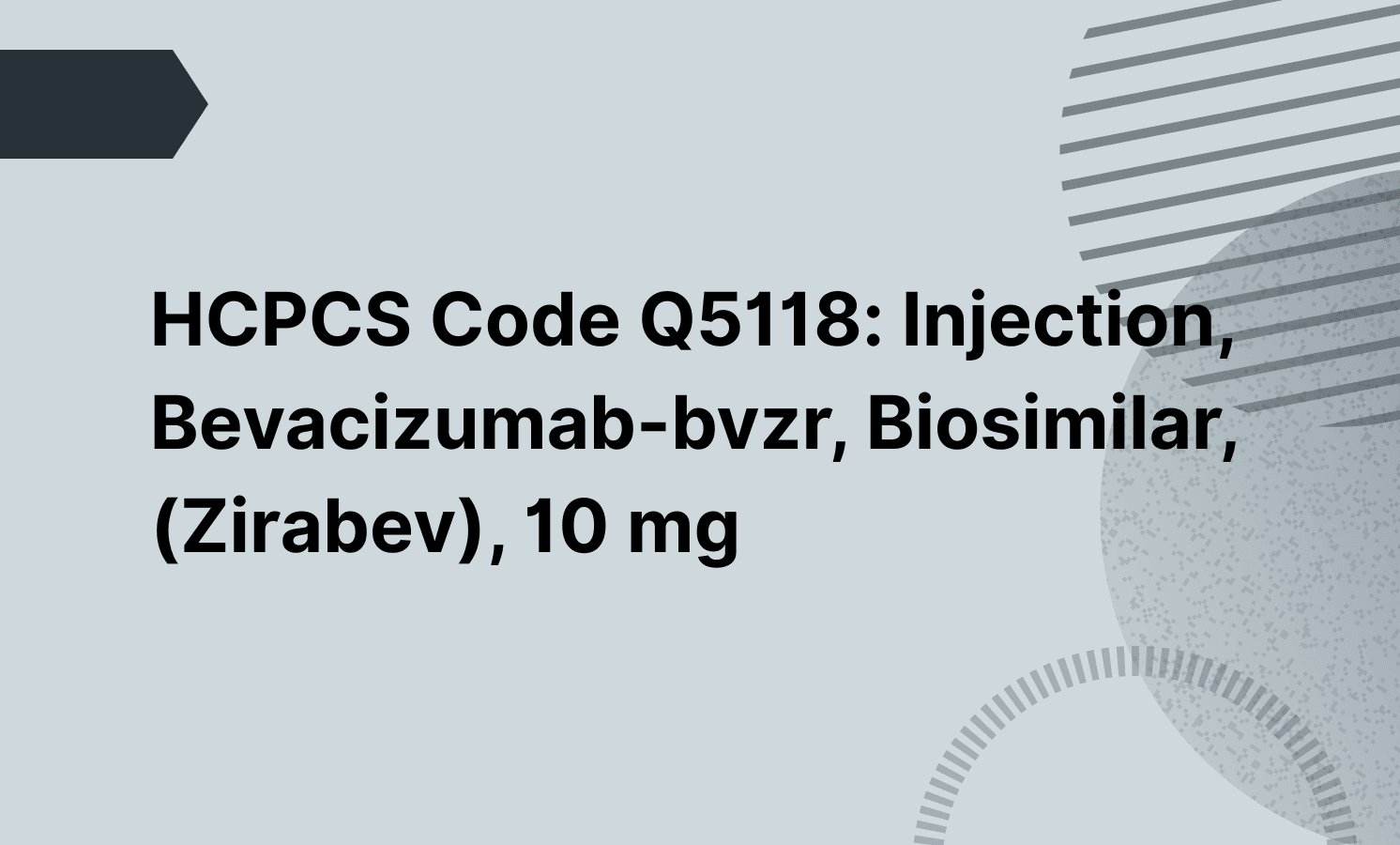CPT 00813 is used for deep sedation or general anesthesia in high-risk patients or those with elevated complexity, such as those with severe cardiopulmonary disease. In contrast, 00811 and 00812 apply to lower-risk cases involving screening or diagnostic colonoscopy under monitored anesthesia care.
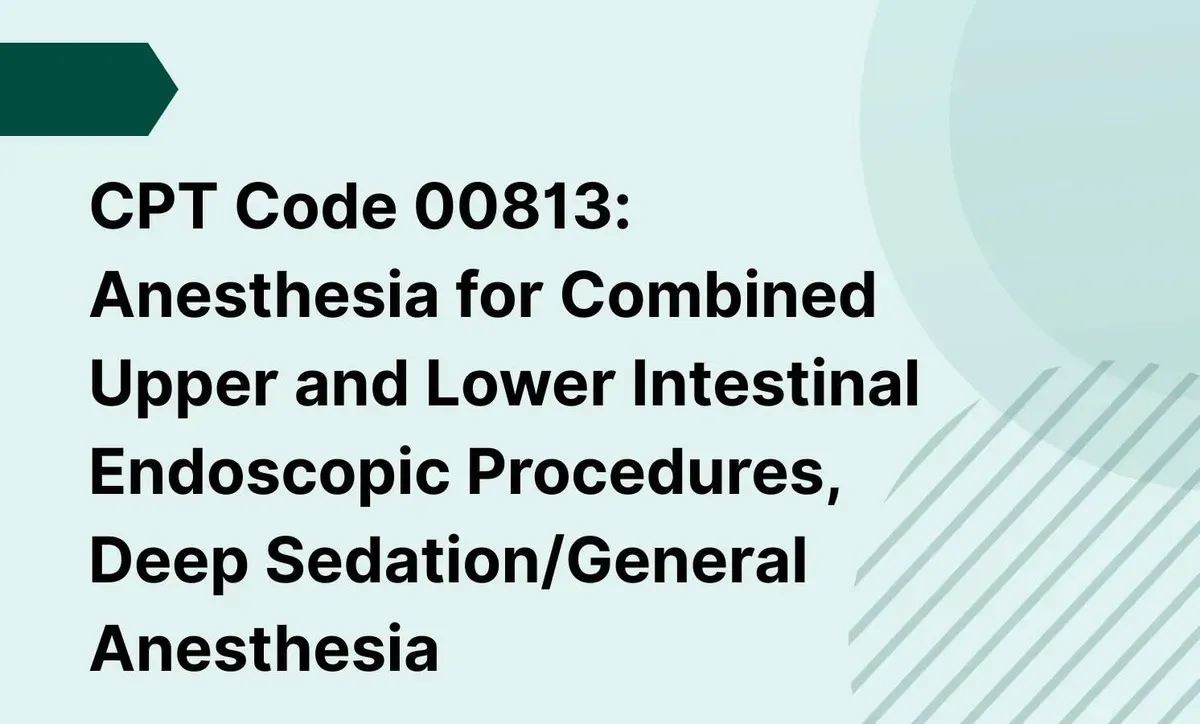
CPT Code 00813: Anesthesia for Combined Upper and Lower Intestinal Endoscopic Procedures, Deep Sedation/General Anesthesia
Learn about CPT code 00813 for deep sedation in combined upper and lower GI procedures.
Use Code
Frequently asked questions
Yes. CPT 00813 is appropriate for pediatric patients, particularly when general anesthesia is medically necessary due to age, level of cooperation, or underlying medical conditions.
Yes. Documentation must include the patient’s ASA physical status classification and clinical justification for the use of deep sedation or general anesthesia, supporting the medical necessity for CPT code 00813.
EHR and practice management software
Get started for free
*No credit card required
Free
$0/usd
Unlimited clients
Telehealth
1GB of storage
Client portal text
Automated billing and online payments

